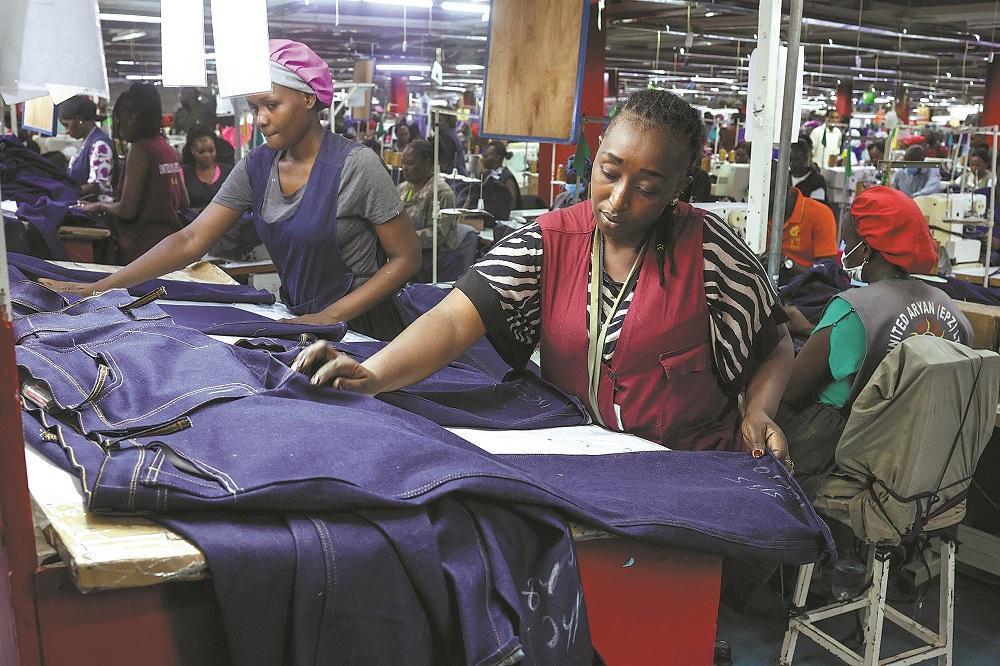Africa-Press – Tanzania. Some of Africa’s most successful manufacturing industries will face “debilitating” hits if Donald Trump’s administration allows a 25-year-old trade agreement with the continent to expire next week, the head of a UN trade agency has warned.
The African Growth and Opportunity Act (Agoa), which offers zero-tariff access to US markets for 32 of the continent’s developing countries, is on course to lapse next Tuesday if Congress does not renew the pact, as analysts expect.
The act has been behind the growth of manufacturing in sectors such as clothing, leather and footwear, where tariff-free access has enabled African countries to compete against Asian rivals such as Cambodia and Bangladesh.
The negative effects would fall disproportionately on countries such as Madagascar and Lesotho that have built up industries off the back of the agreement, said Pamela Coke-Hamilton, executive director of the International Trade Centre, a joint agency of the UN and World Trade Organization.
The mountain kingdom of Lesotho, with a population of 2.3mn, has become Africa’s largest garments exporter to the US, serving companies such as Levi’s and Wrangler.
“While at the global level the impact on continental Africa is minimal, the implications for a few countries will be debilitating,” Coke-Hamilton told the Financial Times.
“If Agoa lapses, countries that have been depending on it and have built industries around it for a quarter century are going to have the rug pulled out from under them — on top of the impact of the latest US tariffs.”
The combination of the trade pact’s expiry, plus the US president’s reciprocal tariffs, will reduce exports from Agoa-eligible African countries by a collective total of 8.7 per cent by 2029, according to ITC modelling to be published this week as world leaders attend the UN General Assembly in New York.
The ITC forecasts a far larger impact on some exports such as South African cars and clothing from Lesotho, which are expected to decline 23 per cent and 29 per cent respectively.
Other Agoa-eligible countries that the ITC warned would be hit by a “major drop in exports to the US” include Kenya, Mauritius, Tanzania, Madagascar and Eswatini, with losses concentrated on clothing and tuna exports.
A handful of countries including Gambia and Senegal stand to gain from the Agoa’s expiry as the new US tariff regime — while increasing levies — leaves them with lower rates than some of their rivals, boosting their relative competitiveness.
Agoa, first signed into law by former US president Bill Clinton in 2000, covers some 6,800 tariff lines. It was last renewed for 10 years in 2015, but Congress has not taken up proposed legislation for a further extension.
Lesotho has warned of massive lay-offs despite lower-than-expected tariffs of 15 per cent imposed in August, down from a threatened 50 per cent when Trump announced his “liberation day” duties in April.
The imposition of tariffs across Africa by the Trump administration stands in contrast to China, which announced in June that it was planning to extend tariff-free access to 53 African countries.
Analysts warned that the lapsing of Agoa would also remove a forum at which the continent engaged collectively with the US on commercial matters.
Ken Opalo, associate professor in the school of foreign service at Georgetown University in Washington, said allowing Agoa to lapse would in part be a failure of African diplomacy, with individual countries not joining forces to deliver a concerted lobbying effort in Washington.
“It’s a loss at a strategic level, because it’s yet another reminder that both sides don’t view commercial relations to be of strategic importance,” he said.
Kholofelo Kugler, non-resident scholar at the Carnegie Endowment for International Peace, said the failure to renew Agoa would reflect the reality that Africa was low on the list of the Trump administration’s strategic priorities.
“This is a missed opportunity for the US, which could have used a repurposed Agoa to support US sourcing needs, while warding off competition from China on the continent,” she added. The Office of the US Trade Representative did not immediately respond to a request for comment.
financial times
For More News And Analysis About Tanzania Follow Africa-Press







